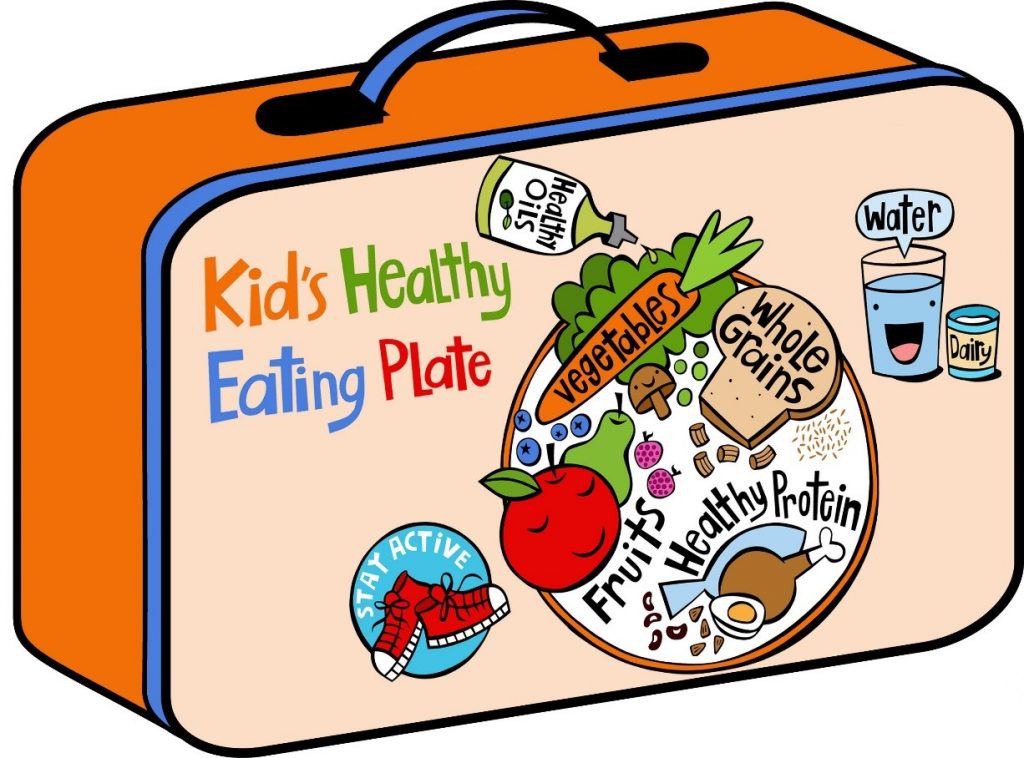Keeping a healthy diet during the coronavirus situation for T1D

Ms. Sylvia Lam, Accredited Practising Dietitian (Australia)
Accredited Dietitian (Hong Kong Academy of Accredited Dietitians)
Due to the coronavirus situation, it is best for children with Type 1 diabetes (T1D) to stay home at this critical time. Parents of children with T1D must pay special attention to the daily diet of their children, including how to strengthen their immune system, and how to keep blood glucose from fluctuating during this time.
1. Eat variety of foods to boost immunity

To boost immunity, the body must obtain enough micronutrients, especially vitamins A, C, D, E, zinc, and selenium. They are important nutrients which help the body to produce white blood cells, antibodies, T cells, and macrophages which all help fight against infectious diseases. Sufficient intake of these nutrients can even increase antibody response to the virus. In case the body is infected by any bacteria or virus, the body has a greater ability to heal and recover faster. The above nutrients can be found in following foods:
| Vitamin A | Liver, eggs Orange-yellow vegetable and fruits such as carrots, pumpkins, sweet potatoes, papaya, persimmons, mangoes |
| Vitamin C | Oranges, kiwis, strawberries, guava, grapefruits, mandarins, bell peppers |
| Vitamin D | Liver, egg yolk, vegetable oil, salmon To bask in sun, so the body can produce vitamin D on its own |
| Vitamin E | Almonds, sunflower seeds, pine nuts, avocados, vegetable oils, salmon |
| Zinc | Beef / pork / chicken, oysters, clams, tofu, cowpea, nuts and seeds |
| Selenium | Brazilian nuts, tuna, sardines, beef / pork / chicken, egg yolk, spinach |
2. Eat regularly with stable amount of foods. Eat enough grains, meat and vegetables at each meal
Make sure to maintain daily routine by having steady meal times including breakfast, lunch and dinner, as well as a regular sleep schedule. People with T1D must also maintain a regular routine for the injection of appropriate insulin dosage and monitor blood glucose based on the amount of food consumed.
Have enough carbohydrates at every meal, including rice, noodle, pasta or bread. It is recommended to choose foods with low glycaemic index (GI) such as red rice, brown rice, quinoa, whole wheat bread, buckwheat noodles or pasta. Also remember to eat enough protein at each meal, which is 2 to 3 teals of lean meat, chicken, fish, tofu, eggs, etc. Adequate intake of protein helps strengthen the immune system yet stabilizes blood sugar. Eat at least ¾ bowl of vegetables per meal, which will help you get more micronutrients and dietary fibre.

3. Choose healthy snacks, say no to junk food

Many children, even parents themselves, eat more snacks as they have more free time at home during this period. Remember, don’t eat junk foods like potato chips, chocolates, sandwich cakes, sweets and ice cream just for something to do or feeling bored!
If in case you eat more snacks than usual, don’t forget to add extra insulin as needed according to the amount of additional foods taken. Prepare healthy snacks at home, such as fruits, nuts, low-fat yogurt, low-fat milk, whole wheat bread, boiled sweet potatoes or corn, etc. for nutritional snacks between meals.
4. Exercise for 30 minutes every day at home
You can try exercise by doing push ups, plank workout, marching in place, and stretches etc at home. You can also follow online videos to perform aerobics, Tabata or high-intensity interval training (HIIT). Exercising regularly helps maintain blood glucose, and strengthens immunity at the same time. Don’t forget to stay physically active during these unusual times against the coronavirus.
You can try exercise by doing push ups, plank workout, marching in place, and stretches etc at home. You can also follow online videos to perform aerobics, Tabata or high-intensity interval training (HIIT). Exercising regularly helps maintain blood glucose, and strengthens immunity at the same time. Don’t forget to stay physically active during these unusual times against the coronavirus.






